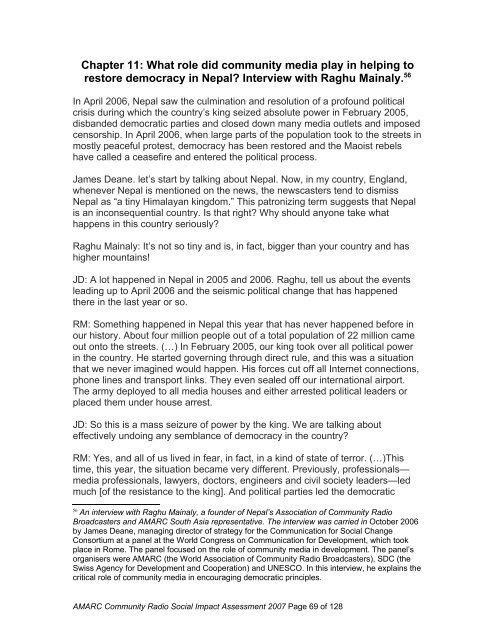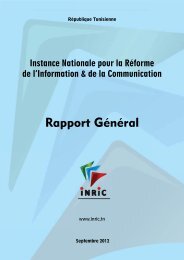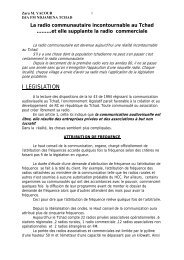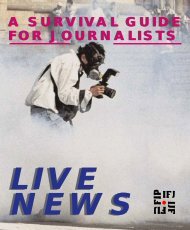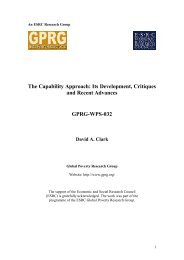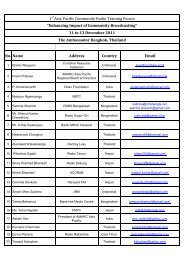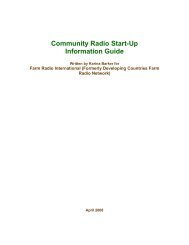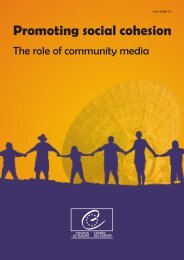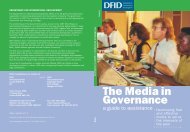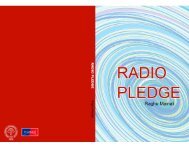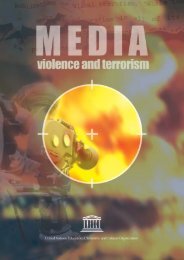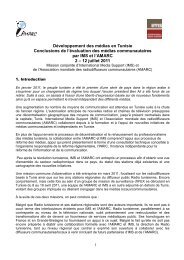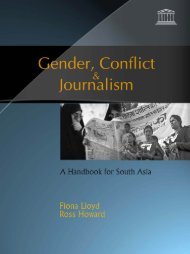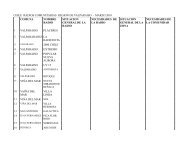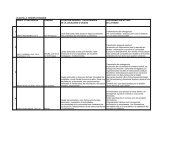Removing Barriers, Increasing Effectiveness - amarc
Removing Barriers, Increasing Effectiveness - amarc
Removing Barriers, Increasing Effectiveness - amarc
You also want an ePaper? Increase the reach of your titles
YUMPU automatically turns print PDFs into web optimized ePapers that Google loves.
Chapter 11: What role did community media play in helping torestore democracy in Nepal? Interview with Raghu Mainaly. 56In April 2006, Nepal saw the culmination and resolution of a profound politicalcrisis during which the country’s king seized absolute power in February 2005,disbanded democratic parties and closed down many media outlets and imposedcensorship. In April 2006, when large parts of the population took to the streets inmostly peaceful protest, democracy has been restored and the Maoist rebelshave called a ceasefire and entered the political process.James Deane. let’s start by talking about Nepal. Now, in my country, England,whenever Nepal is mentioned on the news, the newscasters tend to dismissNepal as “a tiny Himalayan kingdom.” This patronizing term suggests that Nepalis an inconsequential country. Is that right? Why should anyone take whathappens in this country seriously?Raghu Mainaly: It’s not so tiny and is, in fact, bigger than your country and hashigher mountains!JD: A lot happened in Nepal in 2005 and 2006. Raghu, tell us about the eventsleading up to April 2006 and the seismic political change that has happenedthere in the last year or so.RM: Something happened in Nepal this year that has never happened before inour history. About four million people out of a total population of 22 million cameout onto the streets. (…) In February 2005, our king took over all political powerin the country. He started governing through direct rule, and this was a situationthat we never imagined would happen. His forces cut off all Internet connections,phone lines and transport links. They even sealed off our international airport.The army deployed to all media houses and either arrested political leaders orplaced them under house arrest.JD: So this is a mass seizure of power by the king. We are talking abouteffectively undoing any semblance of democracy in the country?RM: Yes, and all of us lived in fear, in fact, in a kind of state of terror. (…)Thistime, this year, the situation became very different. Previously, professionals—media professionals, lawyers, doctors, engineers and civil society leaders—ledmuch [of the resistance to the king]. And political parties led the democratic56An interview with Raghu Mainaly, a founder of Nepal’s Association of Community RadioBroadcasters and AMARC South Asia representative. The interview was carried in October 2006by James Deane, managing director of strategy for the Communication for Social ChangeConsortium at a panel at the World Congress on Communication for Development, which tookplace in Rome. The panel focused on the role of community media in development. The panel’sorganisers were AMARC (the World Association of Community Radio Broadcasters), SDC (theSwiss Agency for Development and Cooperation) and UNESCO. In this interview, he explains thecritical role of community media in encouraging democratic principles.AMARC Community Radio Social Impact Assessment 2007 Page 69 of 128


